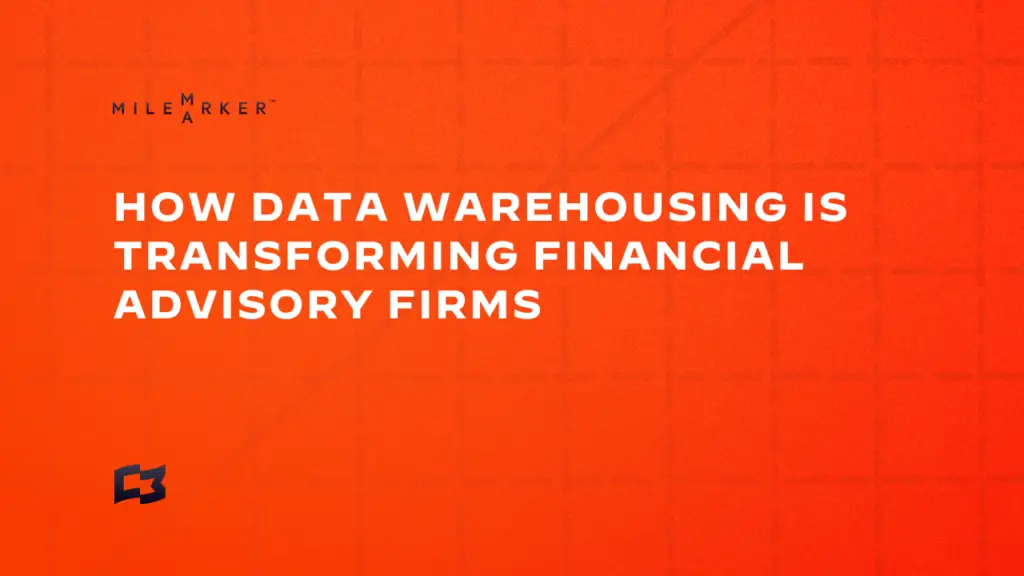How Data Warehousing is Transforming Financial Advisory Firms

In today’s fast-paced financial landscape, data is often regarded as the new gold. However, many financial advisory firms still struggle to manage their data effectively. Jeff Casey, President and Partner at CG Financial Services, explains how implementing a data warehousing strategy has drastically improved the firm’s efficiency and service delivery.
What is Data Warehousing?
A data warehouse is a centralized repository where all client information, transactional data, and other business-critical information are stored. By consolidating data into one accessible platform, financial firms can gain better insights, streamline processes, and make data-driven decisions.
Key Benefits of Data Warehousing in Financial Advisory:
1. Tracking Trends and Gaining Insights
Data warehousing enables financial advisors to track client trends over time, including changes in investment preferences, risk tolerance, and financial goals. With comprehensive, centralized data, advisors can identify patterns and offer proactive, strategic advice that aligns with their clients’ evolving needs.
2. Automating Reporting and Reducing Manual Work
Manual reporting is time-consuming and prone to human error. By automating reporting, data warehousing helps advisors generate real-time, accurate reports without having to rely on manual calculations. This allows advisors to focus on strategic client engagement rather than spending hours on administrative tasks.
3. Enhancing Data Security and Compliance
In an age where data breaches are common, safeguarding client data is a top priority for financial firms. Data warehouses provide enhanced security features, ensuring that client information is encrypted, stored securely, and compliant with industry regulations. Financial firms can maintain trust and adhere to compliance standards with a more robust data infrastructure.
4. Improving Forecasting and Decision Making
A well-structured data warehouse provides accurate, real-time data that helps firms forecast trends, manage risks, and make more informed decisions. Advisors can leverage predictive analytics to anticipate future market changes and adjust investment strategies accordingly. This helps firms maintain a competitive edge and better serve clients.
The Impact on Financial Advisory Firms
Without structured data management, firms are essentially navigating blind, making decisions based on incomplete or outdated information. With a strong data warehousing infrastructure, financial advisors can enhance their value proposition by providing more personalized, tailored advice based on accurate and timely insights.
By centralizing client data and automating processes, firms can operate more efficiently, reduce operational costs, and focus on what truly matters—building and maintaining client relationships.
Conclusion: Data is Power
In the financial advisory world, data is not just an asset; it’s a competitive advantage. Data warehousing enables firms to unlock the full potential of their data, offering better insights, improved security, and enhanced forecasting capabilities. Financial firms that embrace data warehousing can not only boost efficiency but also offer a higher level of service to clients.
Inspired by The Connected Advisor podcast featuring Jeff Casey, President and Partner at CG Financial Services, learn how wealth management firms can expand their services and future-proof their business using EOS for financial advisory firms. Listen to the full episodehere and exploremore articles in this series.
